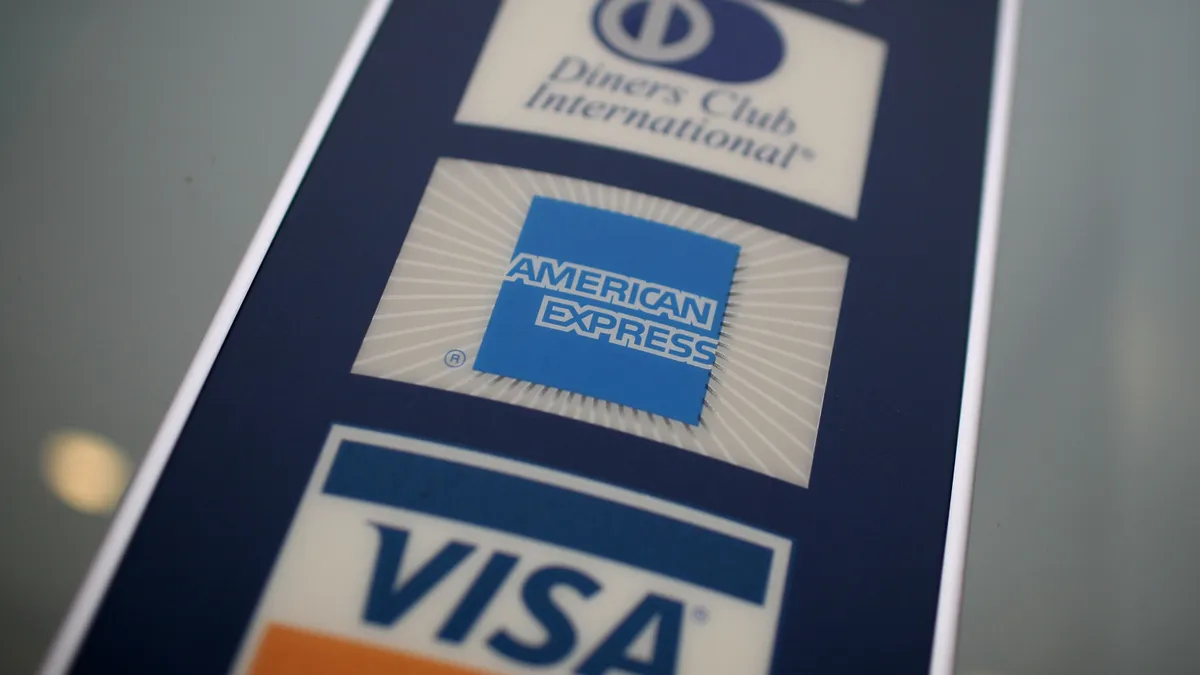A new Illinois law aimed at disallowing card interchange fees on taxes and tips will be halted temporarily for national banks and federal savings associations, but may take effect for state banks and credit unions.
U.S. District Court Judge Virginia Kendall ruled last month on the banking industry plaintiffs’ request for a preliminary injunction as they seek to overturn the new law before it takes effect on July 1. While she granted the injunction for the national and federal bank players, she denied it with respect to the card networks involved.
Kendall reserved judgment on whether to temporarily halt implementation of the new law for state banks and credit unions until lawyers for the two sides deliver supplemental briefs on the matter. Kendall posed questions to the parties as part of her Dec. 20 ruling.
“If you're not a national bank, or a federal savings association, you don't have relief from this law yet, and so you need to start looking at, what can we do to comply,” explained Kristen Larson, an attorney with Ballard Spahr who focuses on financial services. “So, unless her next order will extend it to all banks and credit unions, then there’s this bifurcated approach where the state credit unions and state banks are still going to have to comply with this law.”
The Illinois Bankers Association and the American Bankers Association, plus some credit union groups, sued the state last August to block the law in U.S. District Court for Northern Illinois.
The statute and lawsuit have been controversial, with bank and card industry groups arguing that it would be overly complicated and costly to implement, not to mention unlawful. On the other side of the argument, retail organizations lauded the new law for giving them relief from paying fees on the part of consumer tabs covering taxes and tips.
The Illinois law’s future is significant because other states have considered similar measures. In this first state attempt at such a law, there would be a $1,000 fine per transaction violation, plus a refund of any illegitimate fees collected.
It’s also part of a broader battle raging between banks and retailers over interchange fees that banks and card networks charge when consumers swipe their cards to pay for goods and services.
While banks and card networks, such as Visa and Mastercard, say the fees are justified as necessary to pay for investments in payment systems and fraud prevention, retailers say they’ve increased too much and have become overly burdensome. The fight has also shown up in the congressional contention over the Credit Card Competition Act proposal, which seeks to inject more competition into the card network industry.
In the Illinois interchange fee law case, the federal judge found fault with applying a state law to U.S. financial institutions. “The Court determined that the Interchange Fee Prohibition significantly interfered with a national banks’ powers to charge fees, regulate credit and debit card transactions, and provide data processing and transmission services by dictating to credit and debit card issuers how much they may charge for a given transaction and how to best structure their non-interest fee arrangement with merchants,” Ballard Spahr attorneys wrote in their firm’s blog post commentary on the law.
Larson, whose firm represents some financial services companies, believes the law will be difficult to implement. It will be “challenging for a number of reasons, because it's requiring a lot of system changes, but it's also requiring you to limit how you use the data.”













